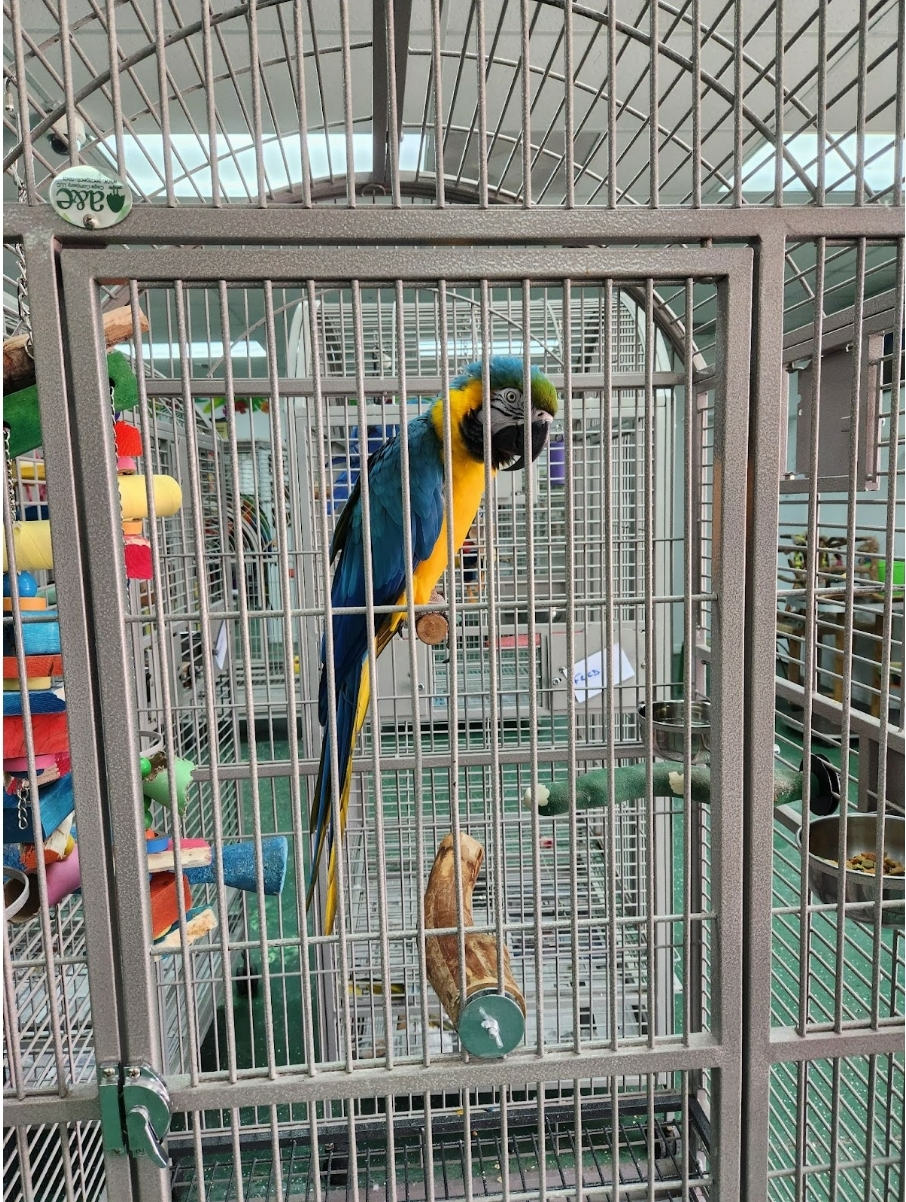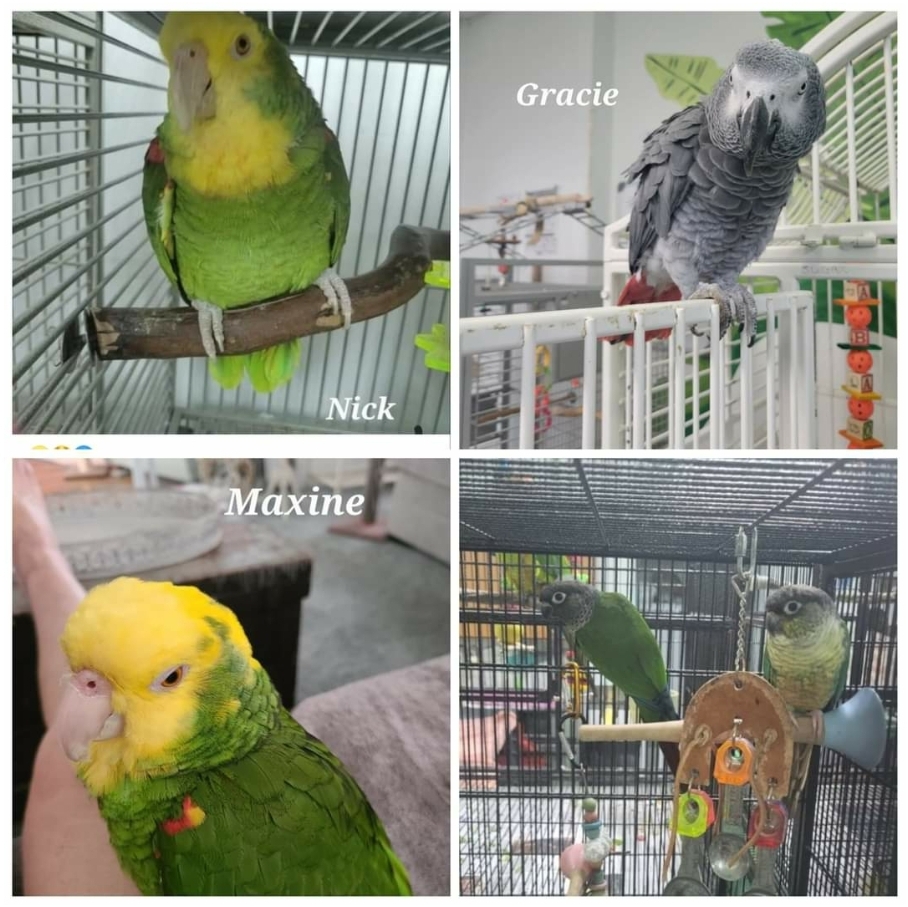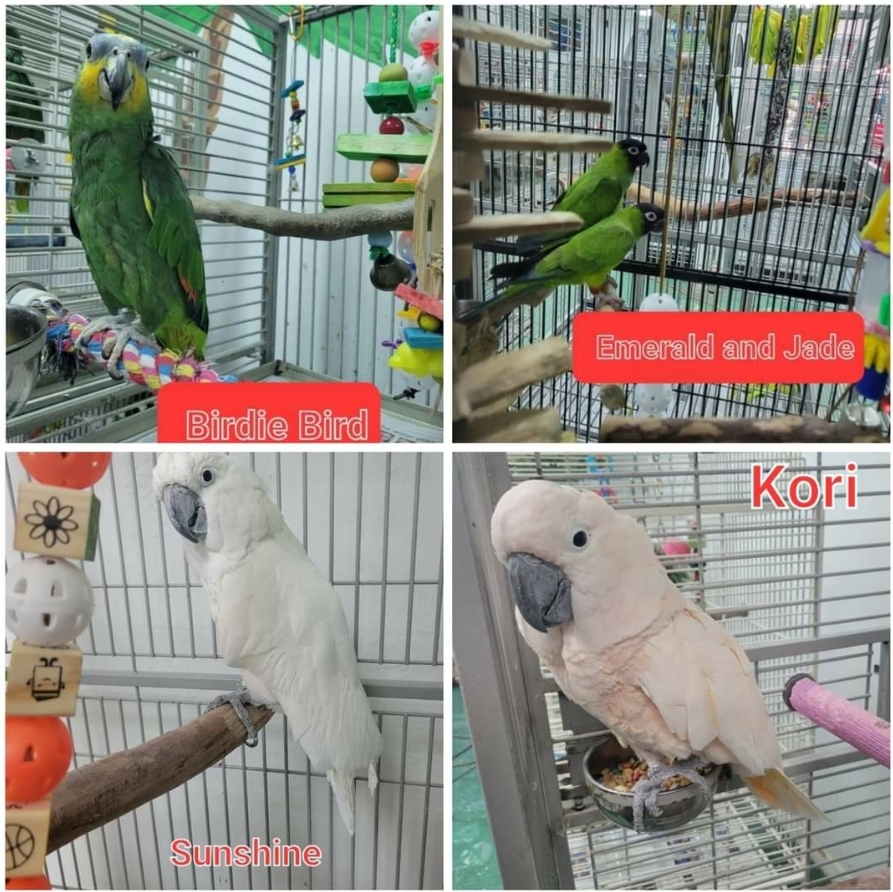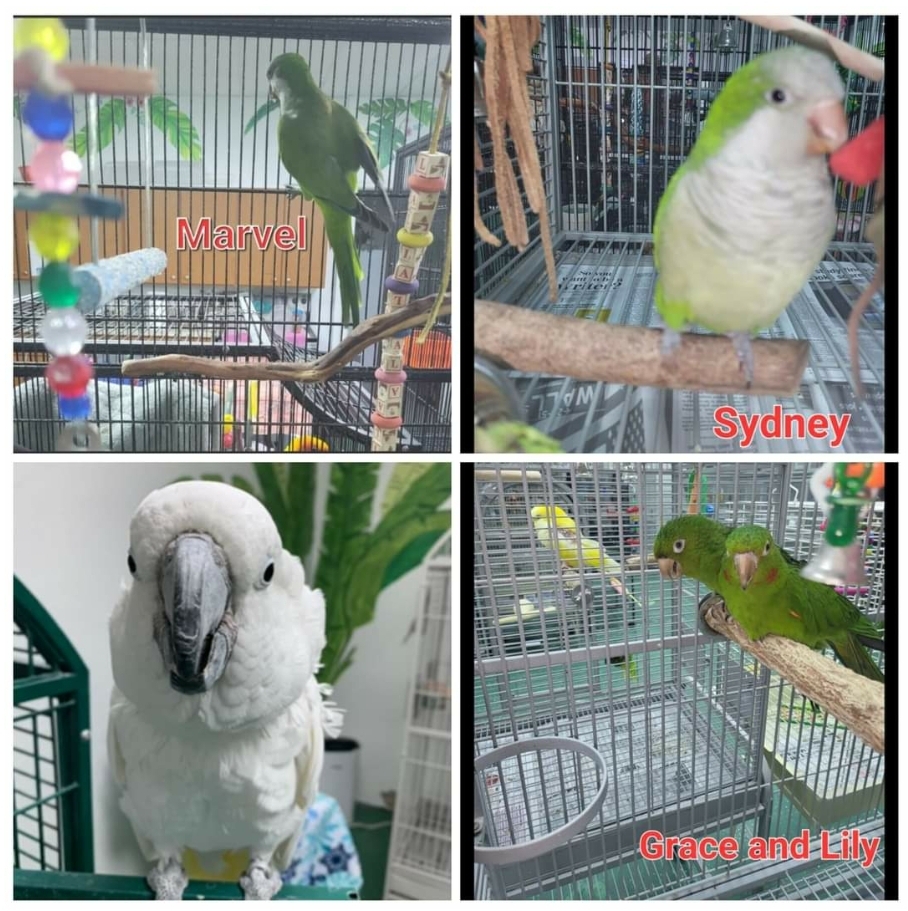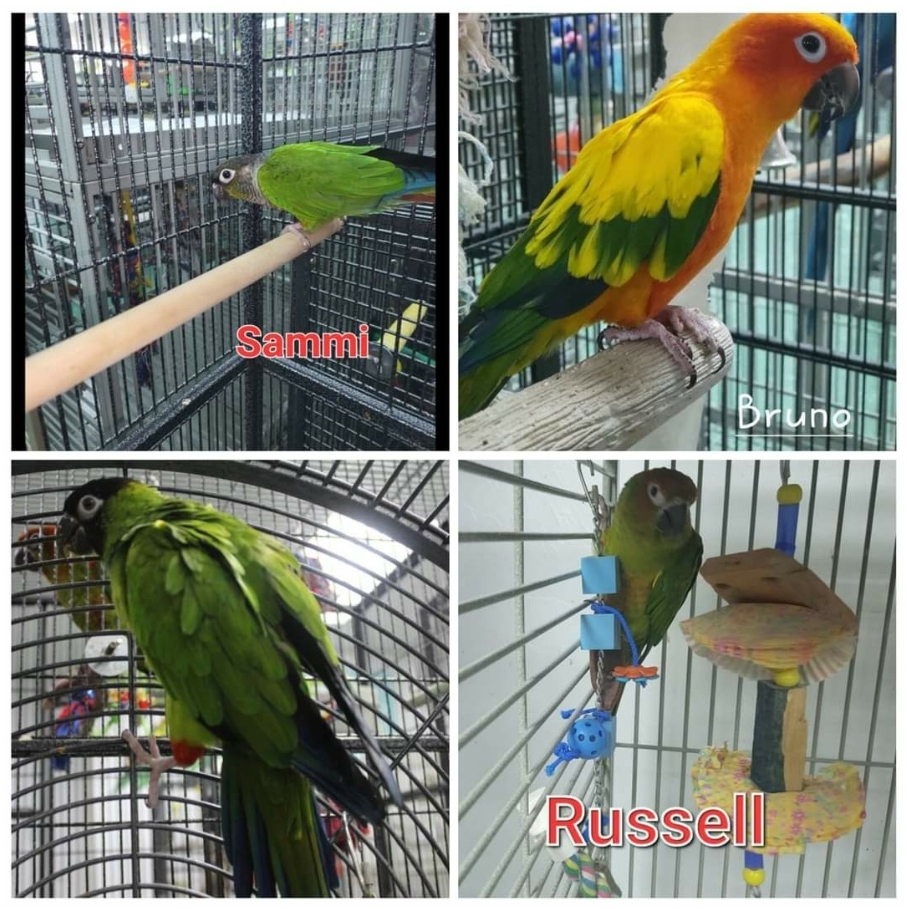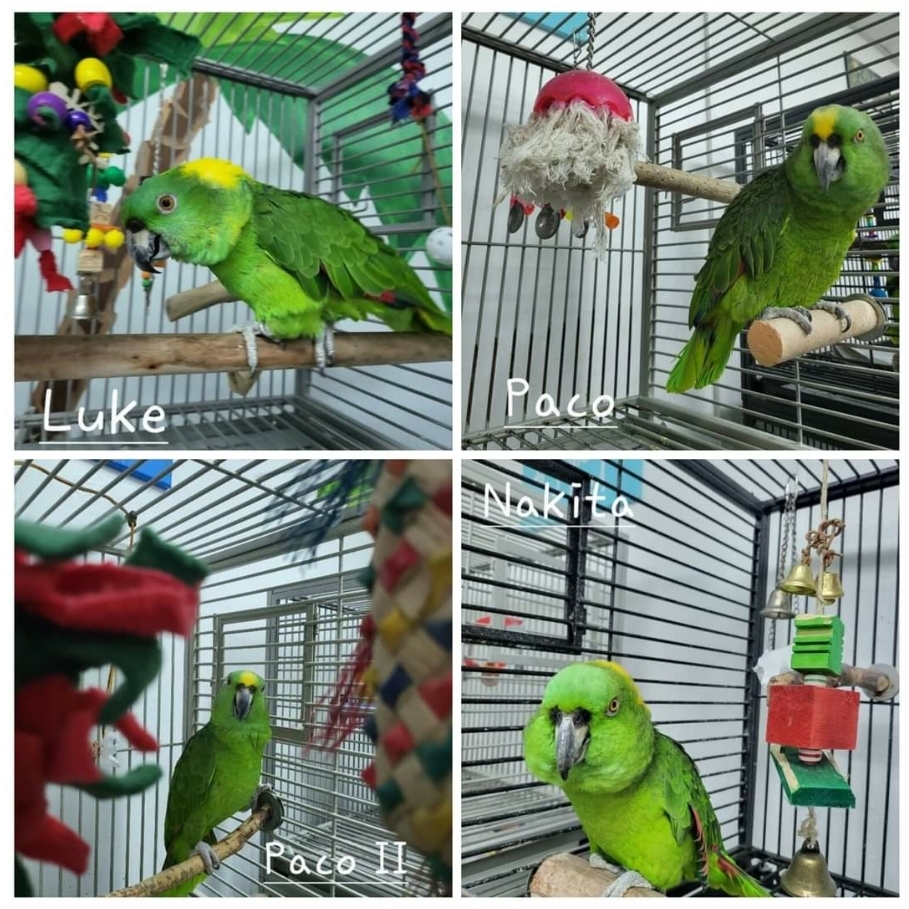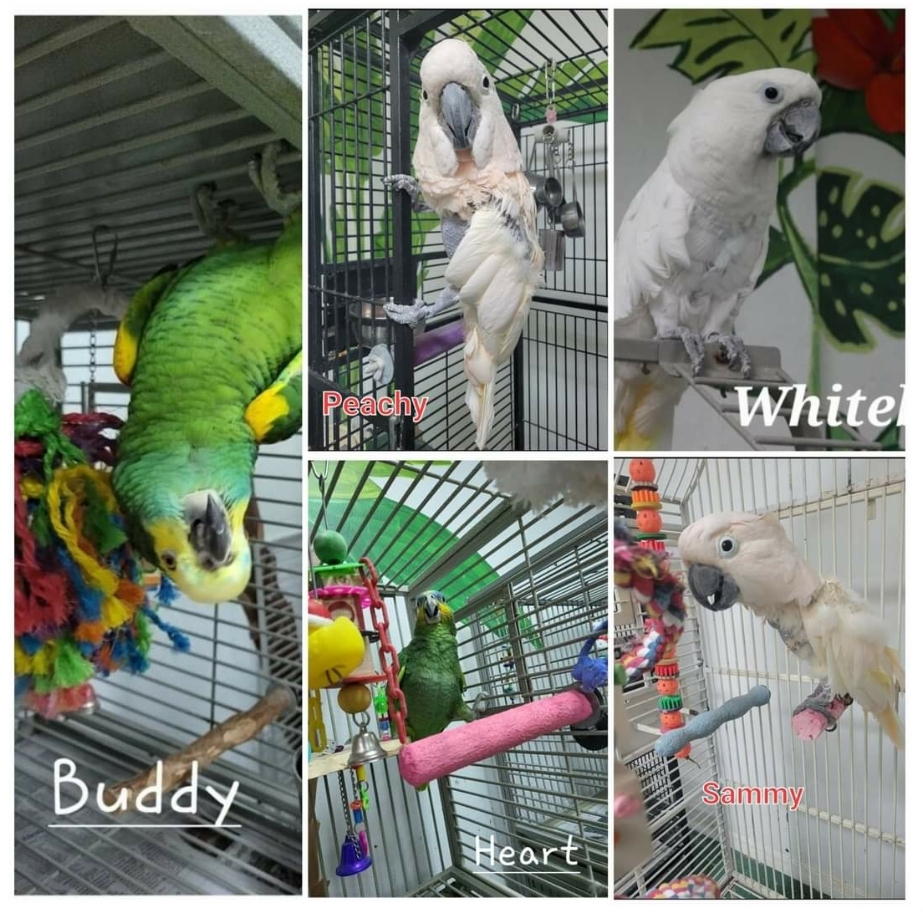Sometime between 2 and 3 a.m. on Tuesday, Sept. 13, an unidentified subject broke into the Parrot Outreach Society’s facility in Punta Gorda and stole 28 birds, ranging from the smallest Quaker Parrot to the largest Umbrella Cockatoo.
Word spread fast among the Punta Gorda community. One lucky bird, a female Green Cheek Conure named Carly, escaped her captor and flew two streets down from the facility. Later in the morning, a man opened his garage door and the conure flew in, causing the individual to reach out to Parrot Outreach Society and return the bird to her home. Carly was a part of a bonded pair, her other half being Ivy, another Green Cheek Conure who is still missing.
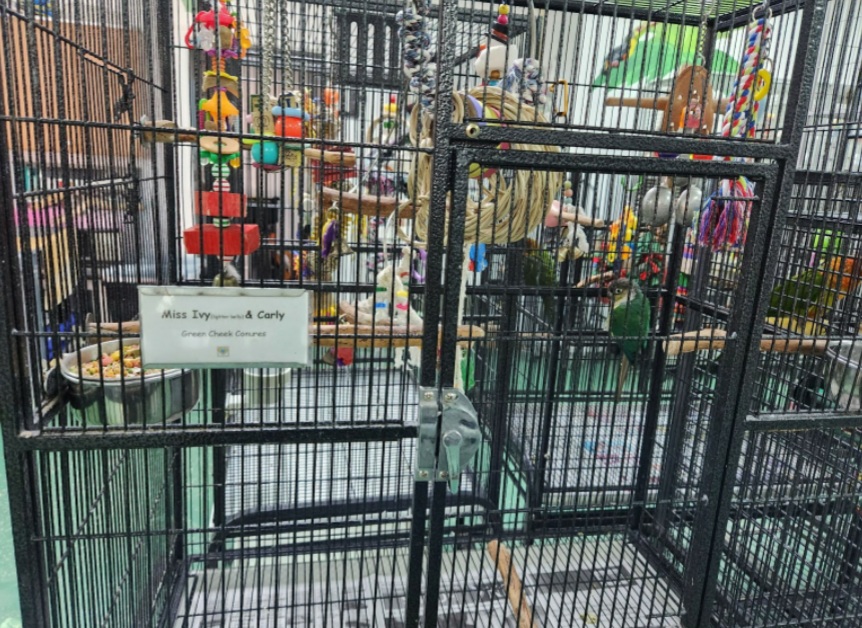
“We just want our birds back,”Executive Director Susan Jennings said—she, along with the rest of the volunteers, are devastated that someone would steal their birds. The organization is currently offering a $22,000 reward for information leading to the return of their birds. Parrot Outreach Society has received support from all over the country since the theft took place: “We are amazed with the amount of support we’re getting.”
Jennings and volunteers have reached out to bird stores, breeders, bird auctions and any bird-related event in the hopes that someone has information regarding their birds. Many supporters are keeping an eye out for these animals by looking at Craigslist, Ebay and other e-commerce businesses in case the perpetrator has posted the birds for sale.
The Punta Gorda Police Department (PGPD) were able to collect a lot of evidence, including fingerprints, from the crime scene and they are looking into every lead they receive. Crimestoppers—the program which allows people to provide anonymous information about criminal activity—is also hard at work in order to catch the perpetrator and return these birds to their rightful home.
“The Punta Gorda Police Department has been outstanding,” Jennings said. She praised the PGPD in their frequency of updates and vigilance to find these stolen animals. She states that the PGPD has been communicating with the organization and is working hard to find and catch the perpetrator.
There are many ways to help this non-profit organization in this time of need. Donations of money, supplies, unopened bags of quality bird food and even fruit and vegetables are accepted. Donating money to the organization can be done online through their website or it can be donated in person. Oftentimes, people will buy supplies from Parrot Outreach Society’s store in order to donate it back to the organization. Bird feed and toys are always welcome and appreciated.
The organization is currently accepting volunteers as well. Applications can be filled out in person or on Parrot Outreach Society’s website. Volunteers often come in once a week in order to help clean cages and water bowls, assist in other daily chores and help manage any emergency evacuations that might take place. The organization also hosts events and fundraisers to raise money and awareness for the animals that volunteers can go to.
Jennings emphasizes that volunteering with them is “not just cleaning cages.” Volunteers do not need any experience with birds, as the organization is willing to teach anyone how to behave around the animals. It’s also important to note that people do not need to be a volunteer or donate in order to help this organization: Anyone is welcome to simply come in and spend time with the birds by talking or even reading to them. These animals are highly social creatures who love attention and mental stimuli.
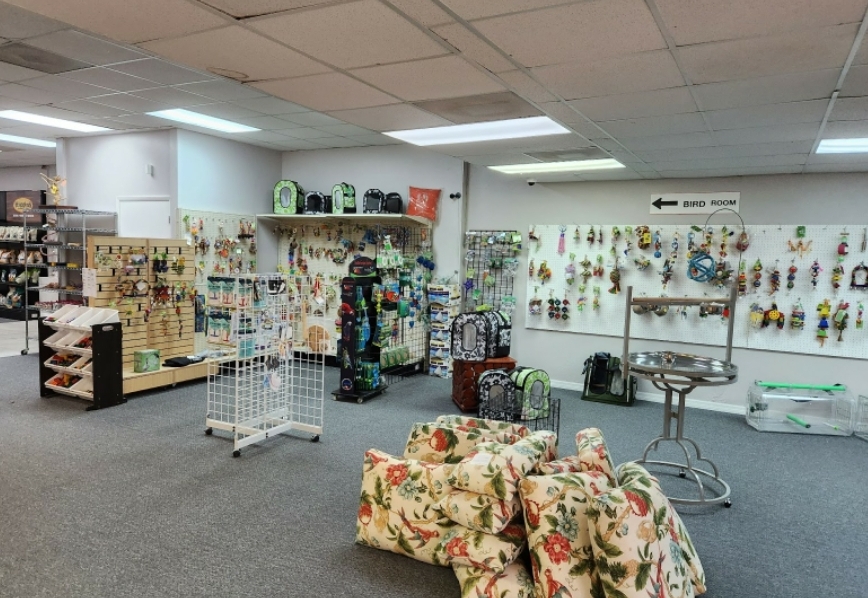
The birds kept in Parrot Outreach Society’s facility have been to one or more homes in their lifetimes—these birds often have medical or behavioral issues and are simply in need of a good and forever home. Although these birds desperately need a family, Parrot Outreach is determined to ensure the person adopting a bird is well educated and socialized with the bird they’re adopting. Potential bird owners must come in three separate days and spend an hour or more bonding with their bird while a volunteer provides information about owning and living with a bird. Then a home visit is conducted and the potential bird owner is provided more information about the bird. Finally, the owner must pay an adoption fee ranging from $50 to $500 depending on the kind of bird the person wants to adopt.
“People need to educate themselves before they buy a bird,” Jennings said.
Birds are complicated animals who can live very long lives—they have a lifespan from four to 100 years old and they need a lot of attention. Owning a bird is just as big of a commitment as owning any other animal. Those who are interested in adopting, volunteering or donating can reach out to Parrot Outreach Society by email (admin@parrotoutreachsociety.org) or they can refer to the organization’s website.
If anyone has any information regarding these missing birds or who the perpetrator is, please reach out to PGPD and the Parrot Outreach Society. The organization is missing their birds dearly and simply wants their safe return. All missing birds are pictured below, photos courtesy of the Parrot Outreach Society.

